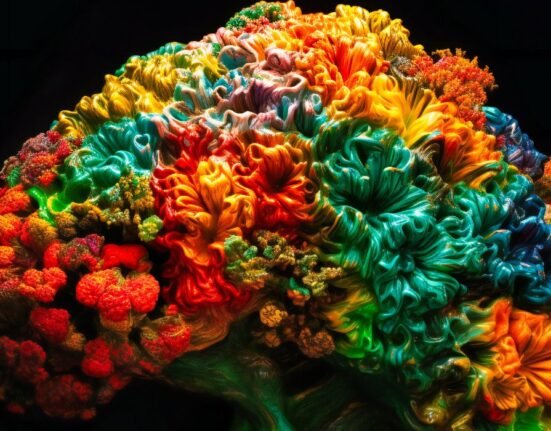The concept of sleep hygiene first caught on when Peter J. Hauri coined the term in 1977 whilst formulating a set of rules to achieve better sleep. Good sleep hygiene can lead to many psychological, physical, and behavioural benefits. Some tips to aid you in maintaining good sleep hygiene backed by scientific evidence are as follows.
Read More: The science of sleep: what goes on in your brain when you sleep?
Tips for Better Sleep Hygiene
#1 Avoid exposure to bright light during the evening
The circadian rhythm is responsible for mental, physical, and behavioural changes including sleep occurring in a 24-hour cycle (NIGMS, 2023). When exposed to intense exposure of light during the evening, studies found that the circadian rhythm could potentially face a 6-hour delay causing disarray in other functions such as cognitive and physiological processes as well (Czeisler et al., 1986).
#2 Do not take naps during the day
Studies indicate that people who take naps during the day have higher sleep latency, or in other words, take longer to fall asleep at night after putting the lights out (Werth et al., 1996). However, this tip is not a one-size-fits-all solution. In special cases when people pursue professions with long working hours taking short naps can increase alertness (Rosekind et al., 1995).
#3 Do not consume caffeine Regularly
Caffeine is known for its ability to induce wakefulness. Researchers found that consuming caffeine during the day can have an impact on sleep on the same as well as the subsequent day. It can reduce sleep efficiency and reduce the total amount of sleep. These issues may persist until the caffeine is out of the nervous system which is why it is advised to not consume it regularly (Landolt et al., 1995).
#4 Avoid the consumption of Alcohol during late Afternoons
Alcohol consumption during the late afternoon is believed to affect the amount of uninterrupted sleep taken by the individual. This can also have a detrimental impact on the amount of deep sleep required especially within middle-aged men (Landolt et al., 1996).
#5 Do not watch TV before Sleeping
It has been discovered that people showed shorter sleep latency or ability to sleep when lights are out in a condition where they watched TV compared to walking. This can be especially applied to children who watch TV before going to bed or have TVs in their rooms (Bonnet & Arand, 1998).
#6 Take hot baths before Sleeping
Taking hot baths before sleeping can act as a passive increase in body temperature which is shown to help increase chances of deep sleep in all kinds of sleepers, normal or people with insomnia. These baths can also increase sleepiness at bedtime and continuous sleep (Dorsey et al., 1996; Horne & Reid, 1985).

#7 Avoid doing exerting Exercise in proximity to bedtime
Rigorous exercise close to sleeping can delay the onset of sleep beginning in the first place. This can be due to multiple reasons such as high body temperature and dehydration right before going to sleep (Horne & Staff, 1983).
#8 Reduce Environmental noise while sleeping
Scientific findings support the notion that environmental noise can be detrimental to good sleep hygiene. Reducing environmental noise can greatly increase the length of sleep, especially in university students (Brown et al., 2002).
#9 Calm stress before going to Sleep
Going to sleep while stressed can cause pre-sleep arousal which can be caused by psychosocial stressors. These stressors can cause impaired sleep leading to sleep deprivation. By using stress-reducing strategies, people can achieve better quality sleep (Irish et al., 2015).
#10 Avoid the use of Nicotine
Nicotine can increase wakefulness and individuals going through withdrawal can potentially face problems while sleeping. Lesser sleep during withdrawal can increase the chances of relapsing. Second-hand smoke can cause sleep disturbance in individuals due to nicotine levels, however, nicotine is mostly harmful to sleep at large doses (Davila et al., 2010).
#11 Use regular fixed wake-up and bedtimes
Creating and following a fixed wake-up and bedtime schedule can significantly decrease daytime sleepiness. People with fixed schedules also benefit from increased alertness and efficient sleep experiences (Manber et al., 1996).
#12 Going to bed while hydrated.
Thirst while going to sleep can negatively impact one’s sleep length and cause fragmented sleep with interruptions. To avoid this, it is essential to go to bed while hydrated to ensure getting deep continuous sleep (Brown et al., 2002).
#13 Avoid the use of different forms of technology
Researchers found that the use of various forms of technology is correlated with worsening sleep patterns and difficulty falling asleep and maintaining continuous sleep. To ensure good sleep hygiene, it is essential to limit the number of intrusions such as phone ringers, etc. while sleeping (Grandner et al., 2013).
#14 Sleep after consuming a warm beverage
Drinking a hot bedtime drink can be beneficial in decreasing interrupted sleep patterns and increasing the total duration of sleep (Brezinova & Oswald, 1972).
#15 Avoid consuming large meals before bedtime
One study suggested that people who claimed that dinner was the largest meal of their day were associated with having shorter latency or ability to sleep with the lights off as well as a thinner duration of sleep (Castro-Santos et al., 2023).
To conclude, sleep hygiene is an essential form of self-management yet it can be subjective from person to person. As Peter J. Hauri famously put it himself, no two people are the same and every person may have different sleep hygiene habits applicable to their unique self (Hauri, 1991).
Read more articles from Psychologs
- Sleep Apnea: Definition, Symptoms and Treatment
- Lack of sleep reduces happiness and increases anxiety: Study
- Sleep breathing affects memory processing: Research
- Impact of Sleep Disruptions on Preschoolers’ Emotions and Behavior
References +
- Brown, F. C., Buboltz, W. C., & Soper, B. (2002). Relationship of sleep hygiene awareness, sleep hygiene practices, and sleep quality in university students. Behavioral Medicine (Washington, D.C.), 28(1), 33–38. https://doi.org/10.1080/08964280209596396
- Castro-Santos, L., Lima, M. de O., Pedrosa, A. K. P., Serenini, R., de Menezes, R. C. E., & Longo-Silva, G. (2023). Sleep and circadian hygiene practices associated with sleep quality among Brazilian adults. Sleep Medicine: X, 6, 100088. https://doi.org/10.1016/j.sleepx.2023.100088
- Czeisler, C., Allan, J., Strogatz, S., Ronda, J., Sanchez, R., Rios, C., Freitag, W., Richardson, G., & Kronauer, R. (1986). Bright light resets the human circadian pacemaker independent of the timing of the sleep-wake cycle. Science, 233(4764), 667–671.
- Davila, E. P., Lee, D. J., Fleming, L. E., LeBlanc, W. G., Arheart, K., Dietz, N., Lewis, J. E., McCollister, K., Caban-Martinez, A., & Bandiera, F. (2010). Sleep disorders and secondhand smoke exposure in the U.S. population. Nicotine & Tobacco Research, 12(3), 294–299. https://doi.org/10.1093/ntr/ntp193
- Dorsey, C. M., Lukas, S. E., Teicher, M. H., Harper, D., Winkelman, J. W., Cunningham, S. L., & Satlin, A. (1996). Effects of Passive Body Heating on the Sleep of Older Female Insomniacs. Journal of Geriatric Psychiatry and Neurology, 9(2), 83–90. https://doi.org/10.1177/089198879600900203
- Grandner, M. A., Gallagher, R. A. L., & Gooneratne, N. S. (2013). The Use of Technology at Night: Impact on Sleep and Health. Journal of Clinical Sleep Medicine, 9(12). https://doi.org/10.5664/jcsm.3274
- Hauri, P. J. (1991). Sleep Hygiene, Relaxation Therapy, and Cognitive Interventions. Case Studies in Insomnia, 65–84. https://doi.org/10.1007/978-1-4757-9586-8_5
- Horne, J. A., & Reid, A. J. (1985). Night-time sleep EEG changes following body heating in a warm bath. Electroencephalography and Clinical Neurophysiology, 60(2), 154–157. https://doi.org/10.1016/0013-4694(85)90022-7
- Horne, J. A., & Staff, L. H. E. (1983). Exercise and Sleep: Body-Heating Effects. Sleep, 6(1), 36–46. https://doi.org/10.1093/sleep/6.1.36
- Irish, L. A., Kline, C. E., Gunn, H. E., Buysse, D. J., & Hall, M. H. (2015). The role of sleep hygiene in promoting public health: A review of empirical evidence. Sleep Medicine Reviews, 22(1), 23–36. https://doi.org/10.1016/j.smrv.2014.10.001
- Landolt, H.-P., Roth, C., Dijk, D.-J., & Borbely, A. A. (1996). Late-Afternoon Ethanol Intake Affects Nocturnal Sleep and the Sleep EEG in Middle-Aged Men. Journal of Clinical Psychopharmacology, 16(6), 428–436. https://doi.org/10.1097/00004714-199612000-00004
- Landolt, H.-P., Werth, E., Borbély, A. A., & Dijk, D.-J. (1995). Caffeine intake (200 mg) in the morning affects human sleep and EEG power spectra at night. Brain Research, 675(1-2), 67–74. https://doi.org/10.1016/0006-8993(95)00040-w
- Manber, R., Bootzin, R. R., Acebo, C., & Carskadon, M. A. (1996). The Effects of Regularizing Sleep-Wake Schedules on Daytime Sleepiness. Sleep, 19(5), 432–441. https://doi.org/10.1093/sleep/19.5.432
- NIGMS. (2023, September). Circadian Rhythms. National Institute of General Medical Sciences (NIGMS). https://www.nigms.nih.gov/education/fact-sheets/Pages/circadian-rhythms.aspx#:~:text=Study%20Circadian%20Rhythms-
- Rosekind, M. R., Smith, R. M., Miller, D. L., Co, E. L., Gergory, K. B., Webbon, L. L., Gander, P. H., & Lebacqz, J. V. (1995). Alertness management: strategic naps in operational settings. Journal of Sleep Research, 4, 62–66. https://doi.org/10.1111/j.1365-2869.1995.tb00229.x
- Werth, E., Dijk, D. J., Achermann, P., & Borbely, A. A. (1996). Dynamics of the sleep EEG after an early evening nap: experimental data and simulations. American Journal of Physiology-Regulatory, Integrative and Comparative Physiology, 271(3), R501–R510. https://doi.org/10.1152/ajpregu.1996.271.3.r501













Leave feedback about this